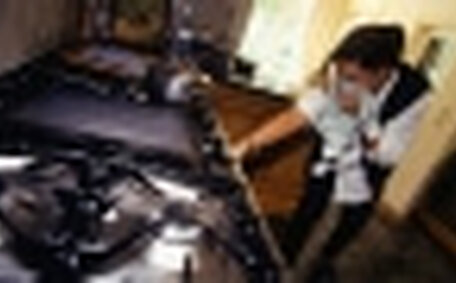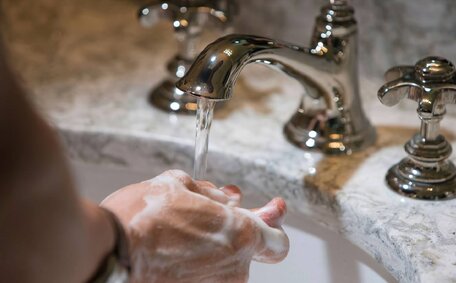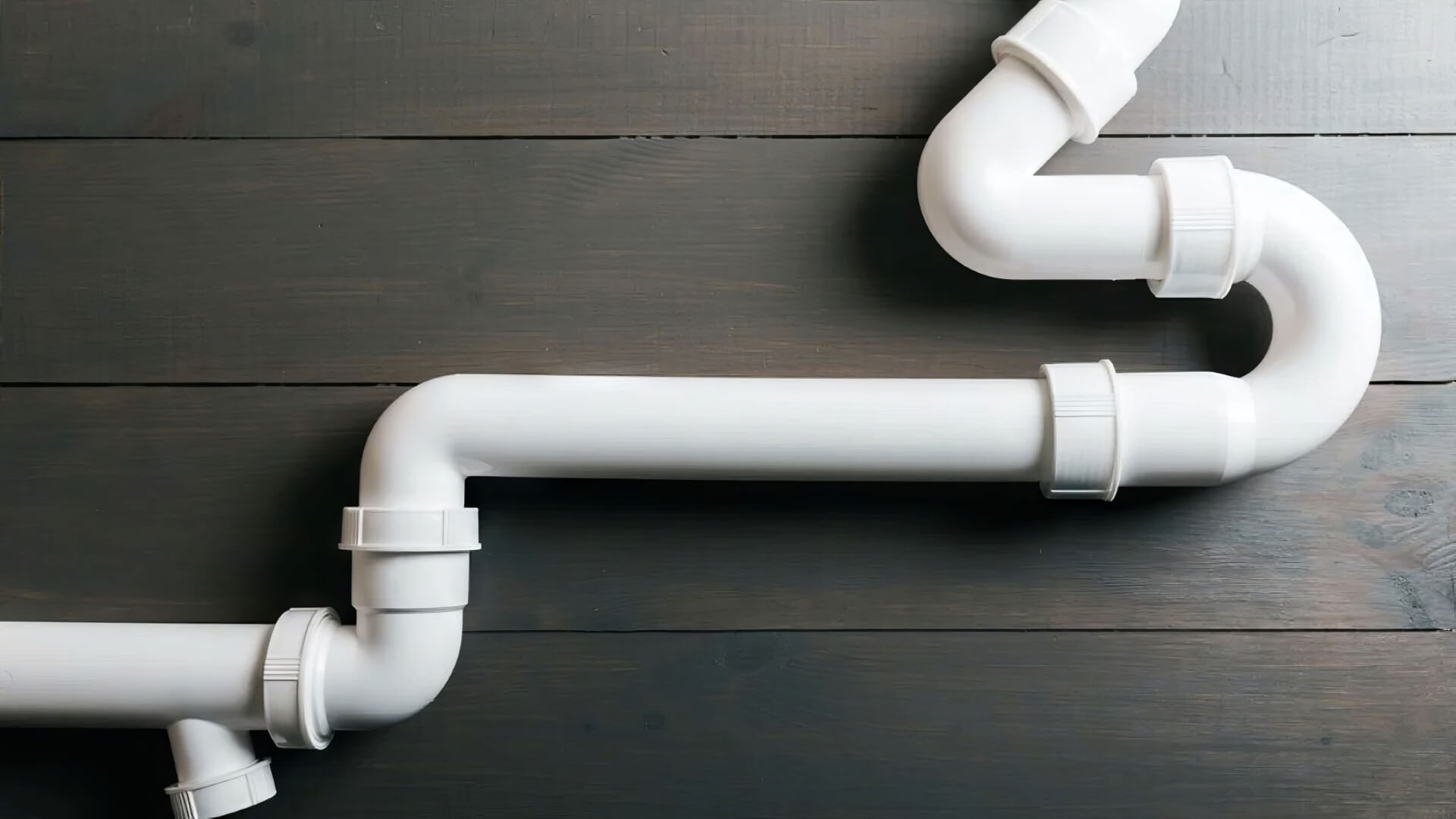The Importance of Preventive Plumbing Maintenance
Preventive maintenance is crucial for avoiding plumbing disasters and keeping your home’s pipes and fixtures in good working order. Being proactive about plumbing care can head off unexpected emergencies, save money on repairs down the road, and demonstrate responsible homeownership.
It’s wise to address even minor leaks, clogs, and other issues before they become big problems. It’s wise to address even minor leaks, clogs, and other issues before they become big problems.
For example, a small drip from a faucet may seem harmless at first, but it can waste hundreds of gallons of water over time and lead to mould or water damage if neglected.
Regular inspections, drain cleaning, pipe maintenance, and replacement of worn washers and seals can mitigate the risk of sudden plumbing disasters. Keeping up with maintenance lets you stay ahead of problems before they result in water damage, unhealthy mould growth, or expensive emergency repairs.
Your home’s water pressure, leaks, and drainage should be monitored for any changes that could signal upcoming issues.
Inspect Your Plumbing System Regularly
It’s essential to inspect your plumbing system on a regular basis to catch small problems before they become big issues. It’s essential to inspect your plumbing system on a regular basis to catch small problems before they become big issues. Test all toilets, faucets and appliances connected to the plumbing to make sure they are functioning properly. Flush toilets and run multiple fixtures at once to check for adequate water pressure.
Drain and fill sinks to verify proper drainage.
a visual inspection, a plumber can use specialised tools like video cameras and pipe locators to thoroughly evaluate the condition of hidden pipes and drain lines. Have your water heater professionally serviced per the manufacturer’s recommendations to keep it operating safely and efficiently.
Left unattended, minor leaks can worsen and lead to mould, water damage or even flooding. A small clog can turn into a fully blocked drain or sewage backup. With regular inspections and prompt repairs, you can avoid plumbing disasters and keep your system running smoothly for years to come.
Know the Location of Your Main Water Shutoff Valve
It’s crucial to know where your main water shutoff valve is located in your home. This valve allows you to stop the flow of water by closing it in the event of a plumbing emergency like a burst pipe or leak. Being able to quickly turn off the main valve can help minimise flooding damage and water wasted.
Make sure all occupants of the house are aware of where the shutoff valve is located so they can access it quickly if needed.
The valve is usually near the water metre or where the main water line enters the home. If you have a basement, it may be on an interior wall down there. The shutoff valve may look like a spigot, lever or wheel.
If a pipe suddenly bursts or you spring a major leak, immediately turn the main valve off to stop additional flooding. Then call a professional plumber to repair the issue before turning the water back on. Knowing how to shut off your water supply during plumbing emergencies can help prevent catastrophic damage to your home.
Maintain Your Drains and Pipes
It’s important to properly maintain your drains and pipes to prevent clogs and keep everything flowing smoothly. Over time, drains can accumulate hair, soap scum, and other debris that slows water drainage. Pipes can corrode and develop pinhole leaks or rust buildup leading to reduced water pressure.
For drain maintenance, avoid pouring fats, oils, and grease down the sink - these substances solidify and cling to pipe walls.
Use natural drain cleaners like baking soda and vinegar instead of harsh chemical cleaners. Use drain covers and strainers to catch hair and food particles before they go down the drain. Clean sinks, tubs, and shower drains regularly by removing drain covers and washing away accumulated gunk.
Check exposed pipes periodically for leaks, corrosion and loose connections that need repair. Insulate pipes to prevent freezing in cold weather. Check exposed pipes periodically for leaks, corrosion and loose connections that need repair.
Every few months, flush your water heater to remove mineral deposits that can impede efficiency.
With vigilant drain care and pipe maintenance, you can avoid many common plumbing disasters. Clogged drains and leaky pipes lead to backed up sewage, flooding, water damage and unhealthy mould growth. Stay proactive to keep your plumbing system operating properly.
Monitor Your Water Pressure
It’s important to monitor your home’s water pressure regularly. Excessively high water pressure can cause leaks, burst pipes, and accelerate wear and tear on valves, fittings, and appliances.
Use a water pressure gauge to check your home’s pressure. It should be between 45 and 60 PSI. Consistent pressure above 80 PSI can start to damage pipes, cause joints to leak, and decrease the life of fixtures.
If the pressure is too high, install a pressure reducing valve after your home’s main shutoff. This will regulate pressure to a safer range. You can also install pressure relief valves by hot water heaters and washing machines to protect those appliances.
Keeping an eye on your water pressure helps prevent leaks, floods, and damage to your plumbing system. Take steps to lower pressure if it creeps above 80 PSI.
Address Minor Leaks and Drips Promptly
p>p>p>p>p>p>p>p>p>p>p>p>p>p>p>
Practice Proper Waste Disposal
Improperly disposing of waste down drains is a major cause of plumbing disasters. Certain items should never go down sinks or toilets. Grease, fats, oils, and non-biodegradable materials can coat pipes, clog drains, and damage your system.
Avoid pouring cooking grease or oil down drains. Let grease cool and solidify before throwing it in the trash. Use sink strainers to catch food scraps when washing dishes.
Opt for biodegradable cleaning products over harsh chemical drain cleaners containing lye or acids that corrode pipes.
Never flush non-dissolvable items like diapers, wipes, feminine hygiene products, paper towels or dental floss.
These can get stuck and cause clogs. Dispose of hazardous chemicals correctly rather than pouring them in drains. Limit use of garbage disposals to avoid overloading your plumbing.
By disposing of waste properly and limiting what goes down drains, you can prevent buildup in pipes, clogged drains, sewage backups and damage that can lead to plumbing disasters.
Educate Yourself and Family on Plumbing Care
Making plumbing care a shared responsibility in your household is essential. Educate all family members, including children, on how to practise preventive maintenance and what to do in a plumbing emergency.
Show everyone where the water shutoff valve is and make sure they know how to operate it. Demonstrate basic DIY tasks like plunging a clogged drain so young people can help out. Discuss what should and shouldn’t go down drains to avoid clogs.
Have kids join you when inspecting for leaks and other issues so they learn what to look for. Explain the importance of reporting any drips, pressure changes or strange noises they notice. Share the household test for checking adequate water pressure.
Installing aerators, showerheads, and other water-saving devices can be a family activity. Schedule seasonal drain cleaning and sewer line inspections together. Tracking usage on the water bill is also a great learning opportunity.
Equipping your whole household with plumbing care knowledge develops responsibility. Preventive maintenance becomes a regular routine rather than an occasional chore. Being prepared to respond together reduces panic in emergencies.
Investing your family in home plumbing fosters accountability and skills for life.
Hire a Professional for Regular Maintenance
Hiring a professional plumber to conduct routine maintenance inspections and tune-ups on your plumbing system is highly recommended. Annual or bi-annual maintenance from a licenced pro can catch minor issues before they become major headaches.
A knowledgeable plumber will thoroughly inspect all fixtures, pipes, valves, pressure regulators, drains, and more using advanced tools like pipe cameras. They can spot leaks, obstructions, corrosion, high pressure, and other problems not visible to the naked eye.
Professionals have the expertise to properly service complex components like water heaters, sump pumps, sewer ejectors, and garbage disposals. They can also clear drains, descale pipes, and perform preventative repairs to keep everything functioning efficiently.
Investing in regular professional maintenance helps extend the life of your plumbing system. It also reduces the risk of nasty surprises like flooding emergencies, burst pipes, sewer backups, and costly repairs down the road.
While diligent DIY care is important, having a qualified plumber inspect your system provides an expert set of eyes. They recommend upgrades to prevent issues and keep your plumbing operating safely for years to come.
Take Steps to Prevent Issues When Away
When leaving your home for an extended time, such as a vacation, take proactive steps to avoid plumbing disasters while you’re away.
Before your trip, inspect your plumbing system thoroughly looking for leaks, clogs or other issues needing repair. Fix any problems to reduce trouble arising in your absence. Consider scheduling professional maintenance or repairs right before you leave.
To prevent leaks and bursts, turn off your main water supply at the shutoff valve. Make sure appliances like washing machines and dishwashers are emptied of water as well. Set your water heater to vacation or low power mode.
Ask a trusted neighbour to periodically check inside your home while you’re gone. Provide them with emergency contacts and locations of shutoff valves in case issues arise. Consider installing leak detection devices that can automatically shut off water.
Avoid returning to flooding disasters by taking preventative plumbing precautions before and during your time away. Your home will benefit from the peace of mind.
What to Do in a Plumbing Emergency
Plumbing emergencies like burst pipes, leaks, or clogged drains can cause serious water damage if not addressed quickly. Stay calm and take immediate action if you experience a plumbing crisis in your home.
Assess the situation to determine the severity of the issue. For minor leaks from pipes, you can try clamping the area with a sealant wrap as a temporary fix. For major bursts or flooding, turn off your main water supply valve immediately to limit further leakage.
Clear any sinks or drains to allow water an escape point if it starts to back up. Wear rubber gloves and boots for safety when dealing with large amounts of water. Remove any valuable items from the affected area to prevent damage.
Call a 24-hour emergency plumber right away, especially for sizeable leaks, pipe bursts, sewer overflows or major appliance flooding. Professionals have the tools and expertise to correctly diagnose and remedy the problem.
Document all damage for insurance claims and cleanup purposes. Mitigate health hazards by removing soaked carpets or drywall and using fans, dehumidifiers and disinfectants if needed.
Staying focused in an urgent plumbing crisis can mean the difference between manageable repairs and catastrophic destruction. Always reach out to a professional plumber for significant water-related emergencies in your home when required.






